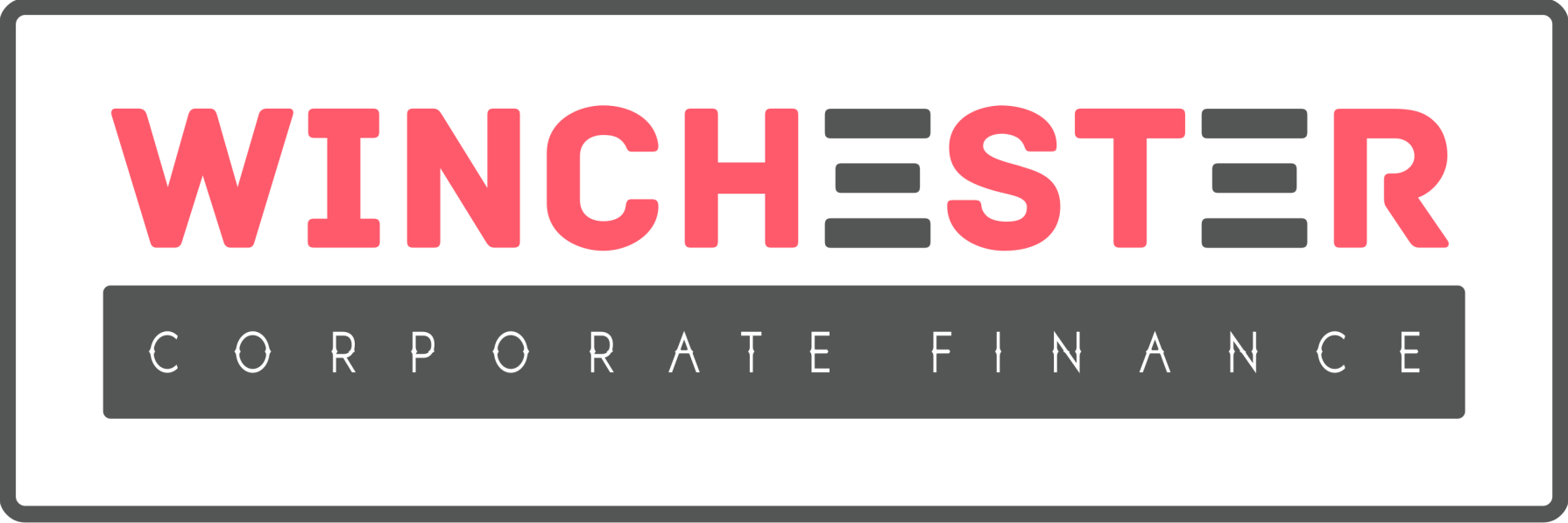Bridging Loans
A bridging loan is ultimately a secured short-term loan. Bridging loans are used to "bridge" the gap between debt due. Bridging loans or bridging finance are most commonly used within the renovation market of the property sector. Bridging loans are not solely used within the property sector, any business going through difficult financial circumstances will reap the benefit of a bridging loan. Commercial bridging loans are short term finance, and are usually paid back within 12 months – so you won’t be paying it back for years like with some traditional loans.
"Could the solution be a bridging loan?"
However, bridging loans are invaluable within the home renovation industry. The likelihood of a home renovation project needing to obtain a mortgage to purchase a property is high unless cash is in abundance. Obtaining a mortgage can be a lengthy process, ultimately the property that is hoping to be purchased could go to another buyer in the time it takes to get one if you are even able to for that specific property.
A mortgage might be declined owing to the property needing renovation with the lender not being prepared to lend the funding to cover the renovations. The solution to this predicament would be a bridging loan to acquire the purchase of the property. A lot of renovation properties are purchased at auction through a bridging loan, renovated, resold and then the bridging loan is repaid. Let Winchester Corporate Finance help you start your house flip dream.
Short term funding solutions
Bridging loans facilitate property development however in times of increased financial stress using a bridging loan as a short term funding solution can be vital and invaluable for businesses. Use a bridging loan to consolidate your business debt and structure a repayment plan that works for you. When a business accepts a bridging loan as a solution for short term financial problems security is implemented by the lender. Bridging loans are secured against a business asset as a precaution. If loan repayments can not be met by the business the lender will claim the asset secured against the loan. Winchester Corporate Finance will guide you through the process.
What do I need to get one?
Getting a bridging loan for your business is all about having a valuable asset to secure it. Unlike regular financing with monthly payments, a bridging loan is paid back when you sell your property or find alternative funding, like a long-term mortgage. Let's say a developer wants to buy a £150K property to renovate and sell, but they only have £50K. They need an extra £100K bridging loan to bridge the gap and complete the property purchase. The loan gets repaid once the property is sold or the developer secures long-term funding.
Intrest Rates
To find the best bridging loan offer, it's crucial to compare different lenders because their interest rates vary. Bridging loans are known to be costly, with interest rates ranging from 0.5% to 1.5%. Since they are short-term loans, the interest is usually charged monthly rather than as an annual percentage rate (APR). Even small differences in interest rates can significantly impact the overall cost of your loan.
Additionally, it's important to consider additional fees associated with the loan. These fees can include up to 2% of the loan amount, arrangement fees, admin fees, legal fees, or valuation fees. Understanding the applicable fees is essential to determine if you can realistically afford the loan along with the fees and interest.
Comparing lenders, taking note of interest rates, and being aware of the various fees involved will help you find the most suitable and affordable bridging loan for your needs.
Interest rate examples
The below table is a cost guide for interest rates on a typical £100,000 bridging loan over 1, 3, 6 and 12 months.
| Interest Rate | 1 Month | 3 Month | 6 Month | 12 Month |
|---|---|---|---|---|
| 0.50% | £500 | £1500 | £3000 | £6000 |
| 0.75% | £750 | £2250 | £4500 | £9000 |
| 1.00% | £1000 | £3000 | £6000 | £12000 |
| 1.25% | £1250 | £3750 | £7500 | £15000 |
| 1.50% | £1500 | £3000 | £9000 | £18000 |
In addition to the interest payments, there are other fees to consider when obtaining a bridging loan. These fees include facility fees, valuation fees, admin fees, and legal fees. These costs are separate from the interest payments and should be taken into account when calculating the total expenses associated with the loan. It's important to be aware of all these fees to ensure you have a clear understanding of the overall financial commitment involved in securing a bridging loan.
Comparing the best loan offers for your business will help you make the right choice.
Bridging loans are usually set up for 12 months and have no early repayment charges or exit fees. You are only charged for the actual time that you use the loan. If you were in a position to repay early, for example in 6 months 20 days from drawdown, you are only charged for the actual time it was being used and have no penalties against repaying it early. Owing to how expensive bridging loans are it is always important to research other funding options before making a final decision. Comparing the best loan offers for your business will help to make the right choice.
There are multiple reasons to use a bridging loan but they are incredibly useful for property investors, developers and landlords. The challenges of getting a mortgage have increased, with the process taking longer and slower than previously encountered. It is hard to purchase a new property before selling an already owned one. A bridging loan can free up funds so that an offer can be made on the next property while waiting for the mortgage to be secured.
Need funds fast?
Bridging loans have the answer
Bridging loans offer versatility in fulfilling various purposes. They are commonly used for purchasing properties at auctions, financing property development, refurbishment, or conversion projects. Additionally, bridging loans can support the acquisition of commercial properties, semi-commercial units, buy-to-let properties, uninhabitable properties, HMO purchases, property refinancing, and land purchases.
To be classified as a "commercial" bridging loan, the property or land should be dedicated to at least 40% commercial use. For example, if you intend to buy a mixed-use property that includes a residential flat along with a retail unit, restaurant, or office space, the value of the commercial unit must exceed 40% of the property's overall value.
A bridging loan empowers you to act swiftly, enabling rapid expansion of your property portfolio. It provides the flexibility to renovate your existing property before selling it or capitalise on time-sensitive opportunities like property auctions. Bridging loans play a vital role in property development, serving as a valuable funding tool that drives progress and facilitates business growth.
"What is your strategy for repayment?"
There are two types of bridging loans, ‘closed’ and ‘open’. Whichever loan type you will be required by the lender to share a repayment strategy. The strategy will answer questions on how you plan on repaying the loan and your current position. Are you selling a house? Are you waiting for a mortgage? etc They’ll want clear evidence of how you’re planning to repay them.
Open or Closed?
If you have already exchanged contracts and you are waiting for a property sale to go through a Closed Loan is an option. This loan has a fixed repayment date because you know when it is likely to complete. A clear exit strategy will need to be provided with a closed bridging loan. This will summarise how the short term loan will be repaid at the end of the loan agreement.
If you don't have a fixed repayment date then an open bridging loan would be the choice. Although there is no fixed date, it traditionally has to be repaid within 12 months and no exit strategy has to be presented to the lender. Unfortunately without an exit plan, an open bridging loan may work out much more expensive.
Advantages and disadvantages
As with any finance option, there are advantages and disadvantages of bridging loans. It is always important to explore all funding options available to your business. The main advantages of a bridging loan are that bridging finance is quick to set up and funds are released quickly too. The borrowing is very flexible with payment only taken on the time that the funds are used. Bridging loans are easily obtainable, even a low credit score can still secure commercial funding. Bridging loans allow you to buy properties at auction quickly within a short period even if they are derelict or inhabitable.
The main disadvantages of a bridging loan are that your property or even multiple properties are at risk of being repossessed by the lender if repayments cant be met. The interest rates for bridging loans are high making them an expensive finance option. Commercial bridging loans are currently unregulated which means hidden charges can be thrown at you. There are also additional costs like admin fees or legal fees that have to be considered.
"Hidden charges can be thrown at you. We keep the process completely transparent so you don't have to worry."
What makes them different?
Bridging loans are unlike other forms of financing because credit scores aren't used as a priority lending criteria. Lenders are more interested in the security submitted by the borrower. The lender receives their payment when the borrower refinances or sells the property.
We will look after you.
The process at Winchester Corporate Finance to secure bridging finance is simple. First, fill in our short quote form, and then we will assess your needs and select the products and lenders best suited. Once suitable lenders are chosen we will introduce you so that they can get in touch with you directly via phone or email.
All quotes are free of charge, and you are not under any obligation to accept any lender quote.
If you do want to move forwards with a lender’s loan offer, you’ll work with them directly to secure your finance.
The process is quick and easy. We will be on hand to answer any questions and guide you through the stages.

"We will save you time and money."
We deliver you the best funding deals for your business which ultimately means comparing offers. Our UK based lending partners are ready to present your business with their best loan offers. We facilitate your collection of lender offers, without you having to spend time going to them individually and filling out timely paperwork. You will receive your free quotes with absolutely no obligation to accept any of them. Our services will save you valuable time and money, together with being risk-free of obligation. You have nothing to lose!
How much can I borrow?
Bridging loans can range from £25k to over £100m depending on what your business needs are, your credit rating and the value of the property you intend on purchasing. Typically bridging loan lenders will offer a loan to value up to 75% of the property, but depending on the security could offer more.
It is possible for a 100% loan to value bridging loan that will cover the total cost of the property purchase. Your business may be able to receive a 100% (loan to value or LTV) bridging loan without having to use a cash security deposit, although the lender may require additional commercial properties or assets as security.
How fast till does it take?
Commercial bridging loans have the capability of being arranged exceptionally fast. Most applications are processed within 24 to 48 hours but occasionally it can take longer. It is not unheard of for the process and funds to be completed within 7 to 14 days.
First charge
Another aspect to consider in bridging loans is whether they are classified as first or second charge loans. In first charge bridging loans, the loan holds the primary position and takes precedence over any other financing secured against the property. For instance, if you use a bridging loan to pay off an existing mortgage, the mortgage will be fully repaid, and the bridging loan will become the first charge against your property. This means that in the event of a default or foreclosure, the first charge loan will be prioritised for repayment before any subsequent charges or loans on the property.
Second charge
In contrast, second charge bridging loans are positioned behind existing loans or finance on your property, such as a mortgage. If your property already has a mortgage in place, the mortgage takes priority over any other financing when it comes to debt repayment. In this scenario, the bridging loan would be secondary in line to be repaid after the mortgage.
While some lenders are open to offering second charge bridging loans, each application is evaluated on an individual basis. Factors such as the overall financial situation and the value of the property will be considered by the lender when determining whether to provide a second charge bridging loan.
Any other Differences?
It's important to understand the distinction between regulated and unregulated bridging loans. The Financial Conduct Authority (FCA) is responsible for regulating the financial services industry in the UK to protect consumers and promote a fair market. However, not all bridging loans fall under FCA regulation.
Unregulated bridging loans are secured against properties or land that will not be occupied by the borrower or their immediate family. These loans are commonly used for commercial purposes, such as buy-to-let properties, investment properties, or commercial real estate. On the other hand, regulated bridging loans are secured against properties that are soon to be occupied by the borrower or their immediate family, or are already being lived in by them.
While unregulated bridging loans make up the majority of bridging loan transactions, it's worth noting that working with commercial bridging loan lenders who are generally FCA regulated can offer added benefits. These lenders often provide both regulated and unregulated bridging loans, ensuring compliance and protection for borrowers.
At Winchester Corporate Finance, we collaborate with FCA-regulated commercial bridging loan lenders to provide you with reliable and secure financing options tailored to your specific requirements.
Think carefully before securing debts against your home. Your home or property may be repossessed if you do not keep up repayments on a mortgage or any other debt secured on it.
Commercial bridging finance is not the only option available for your business. It's important to consider alternative lending products that may be more suitable for your specific needs. These options include commercial business loans, secured loans, commercial mortgages, second mortgages, or even remortgaging your current home to release funds.
At Winchester Corporate Finance, we can assist you in exploring all the available options and help you source the most appropriate solution for your business. We understand that every business is unique, and our goal is to find the right financing option that aligns with your specific requirements.
Finding the right loan for your business among the many options available can be challenging. That's where Winchester Corporate Finance comes in. We specialise in helping businesses secure the funding they need to thrive. Our impartial advice ensures that every business finds the best finance solution tailored to their specific needs.
Whether it's bridging the gap caused by unpaid invoices or maintaining healthy cash flow year-round, we assist businesses of all types. As a broker, our services are completely free of charge for customers. It's worth noting that some bridging loan lenders exclusively work with brokers, making us the key to securing the finance you require.
Trust Winchester Corporate Finance to guide you through the process and connect you with the right funding solution for your business, ensuring its growth and success.
Email: hello@winchestercf.com
Tel: 01243 786258
5A
East Pallant
Chichester
P019 1TR



